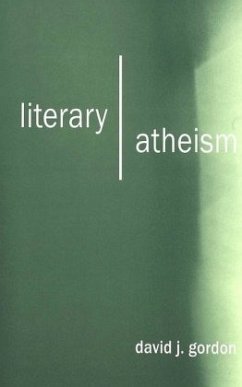After the inward turn promoted by Kant and modified by the Romantics, many educated Westerners came to understand God as an idea or a myth rather than as a being. The meaning of atheism necessarily changed as well. Post-Enlightenment atheists oppose, but cannot dismiss, a particular form and expression of cultural influence. Literary Atheism analyzes a number of oppositional engagements with the idea of God and, in general, explores the tension between the more absolute language of religion and the freer language of literature. Using the concept of perspective to unsettle religious absolutism, this book opens the work of various writers across the last two centuries to fresh insight and seeks to revise some current dogmas concerning morality, science, and politics.

